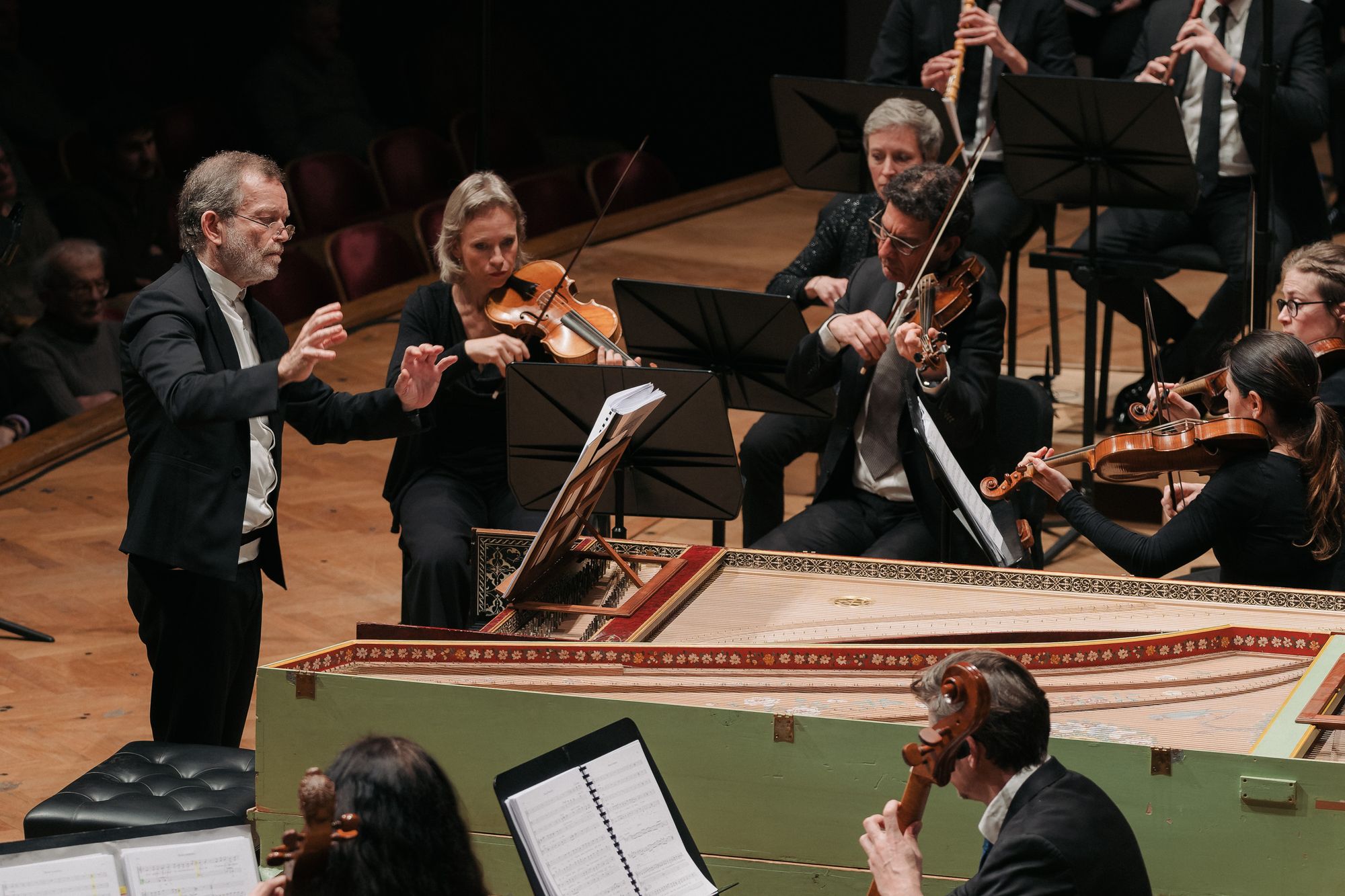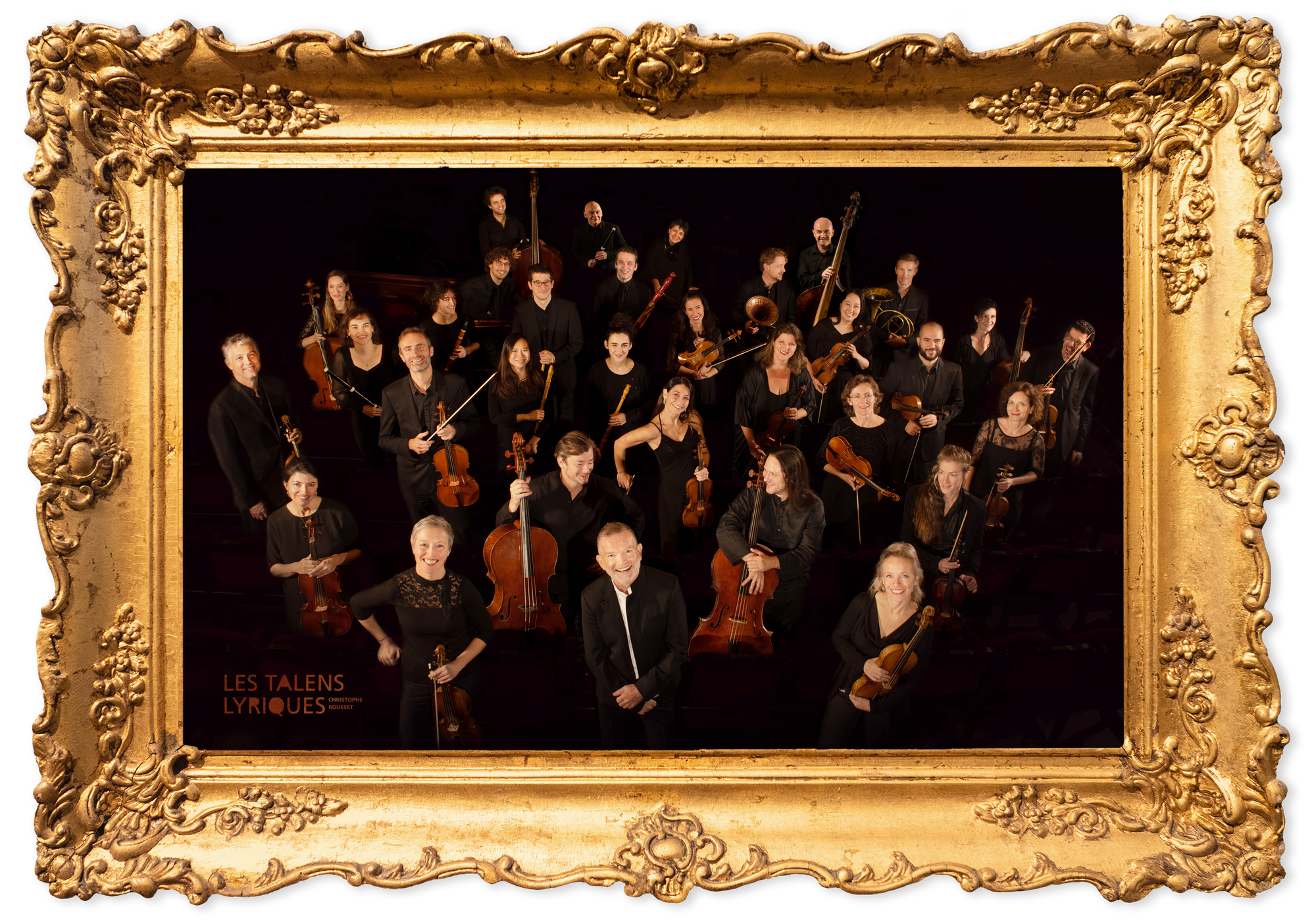Christophe Rousset conducts Lully's opera Thesée

The three-disc set of Lully's ‘tragédie en musique” in a Prologue and Five Acts Thesée performed by Les Talens Lyriques and Christophe Rousset will be released on Friday 13th (!) October, 2023. Here, we present a preview (including the fruits of an interview with Rousset), as I will be away covering the China Music Festival on that day ...
Rousset's performances of Thesée around Europe earlier this year were revelatory. I covered that live at the Théâtre des Champs-Elysées, Paris, and my review appeared in the May 2023 edition of Opera Now magazine.
First performed at the Château-Vieux, Saint-Germain-en-Laye on January 15, 1675, Thesée is a remarkable work. As ou can see from the interview below, the work is recitative-based, but with performers like Rousset and Les Talens Lyriques, there is no drop in dramatic tension at all, even on disc. There is a joy to the sprung rhythms (and see below on Lully and his librettist Quinault's rather interesing spin on 'joy' via Medée!), a real sense of celebration to the amazing choruses (the Namur Chamber Choir is one of the finest choral ensembles - or so it seemed both in live performance and here on record - in truth, they were even finer live).
This is one of the earlist of Lully's operas, so it's probably the first opera that Louis XIV really controlled - he read the libretto and made modifciations. “he wanted this opera to be propaganda for his own glory,” Christophe Rousset told me before the live performance at the Theatre des Champs-Elysees in Paris in March this year. “So when you talk about the good king in Thesée, it is about Louis XIV. The glory - the military glory, but also the generosity towards his people".
As in Cadmus et Hermione (1673), Atys (1675) and Alceste (1674), the story delivered via continuo with recitatives, with dances and divertissements, chorus and a brilliant and glorious scene with trumpets. “But the whole action is for the continuo forces (in later operas you have more and more orchestra” - Armide is probably the most 'orchestrated' example).
“The second period is more heroic, with a lot of machinery, people coming from above and so on, and the third period is with works such as Roland (1685) and Armide (1686), its more human drama with orchestra. Everything is more emotional, because the orchestra brings this element of emotion.”
There is, then, a real sense of development in Lully's operas. But just that statement begs an examination of how we process history: as Rousset says (admitting his bias!): "but, I can't say that - because I'm a harpsichord player - it's less interesting to have the continuo in charge of the plot, because of course then you hace to find the contrasts and the theatricality and the sense of dramaturgy. This is an exercise I love to do with my singers and my continuo. It's not inferior, it's a dofferent way. Thesee is a little like Monteverdi - in Monteverdi, if you don't fdo anyting, it's jusy boring and nothign happens. So you ahev to really be in the text and drama to have this flexibility. It's very flexible as material."
The text is by Quinault - Thesée comes after Psyché in the Rousset sequencing of performances, which was also to a libretto by Quinault. According to Rousset, Quinault was the best of Luly's librettists, there is a real sense of collaboration. “The verses are better, its better written, and there are always these small sentences, like aphorisms. I love them, they are so incredibly clever. It's just stepping back from the action and offering a small philosophy. Quinault was chosen by Lully to be his librettist because he was probably a very nice person and very flexible, and he would modify his texts to give the music space."
The score Rousset uses is a period edition of the time, and he uses it in performance “It's more inspiring. Other people use a modern, critical edition - there are always kind of doubts, choices, but mostly the music is very clear"
One aspect that characterises every Rousset vocal disc is his abilityt o choose singers wisely. “What I like is having a colour matching the character,” he says. “So Medée is dark person, and I like having the voice of Karine [Deshayes) there, she has this power, she has the low range also and can be a little, like, freaky in the third act. It's quite nice to have the idea of the actual character projected through the voice. For the Princess [Eglé], I wanted something very fresh and very fragile, and Deborah Cachet was ideal for this kind of very clear soprano, For the King, the bass, and for the soubrettes, the two little girls, that's very obviousl that we want light voices. It's always very nice to have it to have the right physcal aspect. here we have no scenery [at the Champs-Élysées performance] so it's just the colour of the voie that gives the idea of the character" .
Each act has its own tinta, the third in particular (there's a prfound and obvious shadow over it). "That's Lully's idea. The end of the third act with this intervention of a Hell scene, that's very exciting, and it's about torturing the young princess, and that's a little the same in Isis when Venus is torturing Isis [Lully’s 1677 opéra, Isis). That, to me, is very interesting because it's about torture, but it is joyful. That's to say we are as an audience in the head of Medée, and we are enjoying the turture of the little Princess. That's a coup de force, I love it. It's really so, so clever. We are enjoying this torture, because it's all comic. It's not just terrible and psychedelic. The second act is more about shepherds, so its a different colour, the shepherds come back in the fourth act, and the final act is the marriage, about Medée furious about the Deus ex machina with Minerva solving the whole plot. so it's more grand, the trumpets come back, parallel to the first act. It's a nice symmetry".
Here's Rousset introducing the piece, with rehearsal footage (he speaks in French with no subtitles, unfortunately):
... just listen to the grandeur shot through with light of the dotted rhythms of the Overture's opening. Hearing it on disc - under the microscope, as it were - enables us to really appreciate the subtleties of Rousset's performance, how the instrumental colour bends and flows with the underlying haronic process:
For an idea of the excellence of the singers, and that sense of rightness of voice for each part, here’s the opening of the second act. It begins with the dark-voicesd Medée of Karine Deshayes listen to how she shades the final word, “jamais” (never) of her first statement (“How fortunate the heart that never loses you”) and the change of voice and colour at the entrance of Thaïs Raï-Westphal's Dorine with the far more optimistic, and encouraging, line “recommencez d’aimer, reprenez l’espérance” (Love once more, regain your hope!”. Note, too, how the continuo part lightens, more dancing, livelier:
Deshayes has the whole range of vocal colour in this excerpt - it's almost a masterclass for singers.
and for an example of the excellence of Les Talens Lyriques in the dances, here is the Entr’acte that links the second and third actis (“Reprise du premier air”). In honour of teh band, stick around for the photo below this excerpt!:

That third act is remarkable, an absolute tour de force for Deshayes and indeed, for Lully. Deschayes herself is gripping (her live performance was absolutely remarkable). Everything about this work is remarkable though, from its satisfying symmetry (which puts the third act right at the centre of the action in multiple ways) to Lully’s micro-management of the drama, phrase by phrase. But it requires foces such as these to succeed - and succeed it most certainly does!
The disc under consideration here was already recorded prior to the performances; and the next in the series will be Atys, which was recorded in July 2023 and concerts are planned in January 2024. Rousset told me,
I [Christophe Rousset] was in the Atys of 1986/7 with Les Arts Florissants, I was playing [harpsichord continuo], and I have a lot of images, but I want to be in the same track as all my previous Lully, and probably I will be quite far away from Christie's version, because I have this experience of performing Lully, so it will certainly be different,
Performances are eagerly awaited.
The link below is to pre-order the set from Amazon with a pre-order guarantee of £29.99 for this three-disc Lully extravaganza, with hard-backed, information (and libretto) filled booklet.
